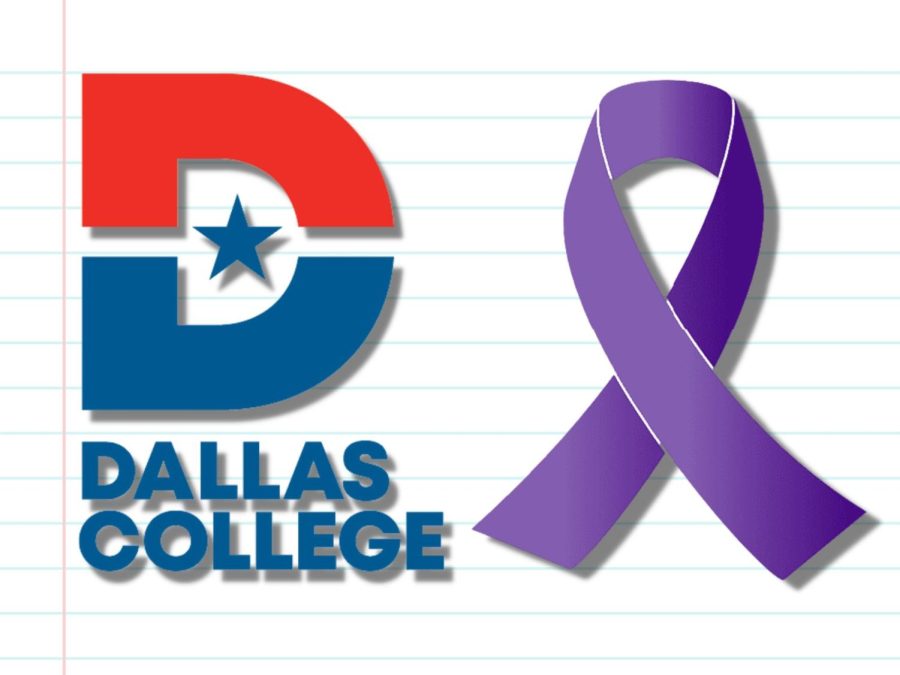Event raises awareness for domestic violence survivors
November 4, 2021
On average, 20 people per minute are physically abused by their intimate partner in the U.S., according to the National Coalition Against Domestic Violence.
According to the NCADV, domestic violence is defined as “willful intimidation, physical assault, battery, sexual assault, and/or other abusive behavior as part of a systematic pattern of power and control perpetrated by one intimate partner against another.”
In honor of Domestic Violence Awareness month, Dallas College held workshops and seminars throughout the month of October to raise awareness for domestic violence victims.
The events were put together by the College Alliance Against Sexual Assault, a group of Dallas College staff, students and employees who work to prevent sexual assault, abuse and stalking. Their members, alongside the Dallas College Counseling and Psychological Services, created the events. They also partnered with local organizations such as Dallas Area Rape Crisis Center and Brighter Tomorrows.
Karen Cuttill, a counselor at the Richland Campus, said: “We hope that students who are experiencing either domestic violence or violence in their relationships, that these workshops will open the door and help them recognize that we can be the first stop. We are totally confidential.”
Cuttill was joined by other presenters at the Recognizing and Supporting Someone Experiencing Domestic Violence virtual workshop at Dallas College on Oct. 5.
The workshop addressed ways to help those dealing with violent relationships and the best ways to support them.
CAASA member Carmen McIver said she wanted to bring light to the difficulties some may face when attempting to leave abusive relationships.
Finances may not be the first topic some think of abusive relationships. However, it is often one of the biggest contributing factors keeping some in abusive relationships.
“In a lot of domestic violence relationships, there’s a financial hold on the victim. It paralyzes them, and they can’t go anywhere else,” McIver said.
They discussed common misconceptions with domestic violence cases. Cuttill said a common myth surrounding domestic violence is that it only affects women.
“Intimate partner violence can happen to anybody, men or women,” Jaime Torres, a counselor at the Eastfield Campus and CAASA chair, said.
According to NCADV, one in three women and one in four men experience some form of domestic violence in the U.S. One in 15 children are exposed to intimate partner violence each year, and 90% of these children are eyewitnesses to this violence.
“It won’t stop until people understand what they’re seeing and understand what’s happening to them and people begin to speak up and intervene,” Cuttill said.
Domestic Violence Awareness Month started as a single day in October 1981 called Day of Unity. It was created by the NCADV to connect those who are working to end violence against women and children. It eventually turned into a week of events and activities at the national, state and local community level.
The movement’s momentum continued to grow, and the first Domestic Violence Awareness Month was held in October 1987. In the same year, the first national domestic violence toll-free hotline was established.
In 1989, U.S. Congress passed the first commemorative legislation designating October as the National Domestic Violence Awareness Month.
Dallas College counseling services are confidential and available at no cost to current students.



